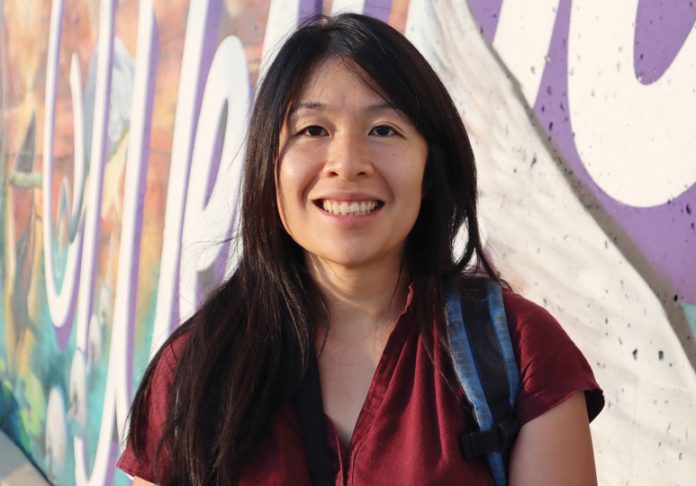“My family is from Vietnam. They came over as boat people refugees. They had my brother there, and then my sister and I were born here in Canada. My upbringing was very different because as a refugee, you’re starting from nothing. We were living in poverty and it changes you: money, thinking, perspective; you value the little stuff so much more.
When I was 15, I had a clump of veins that were not supposed to be there—a malformation. They found out about it because I had a seizure. I had four or more operations to, essentially, go in and glue the part of the vein that wasn’t supposed to be there.
During the second operation, I was in the ICU for 10 hours and it was abnormal because that was really long. During my first operation, I was awake in two hours. The doctors eventually knew something was very wrong and they had to operate again. During that [time], I suffered a stroke.
It took away speech, reading, writing; I have semi-paralysis and semi-paresis, which means it’s still working but abnormally. My brain has contractions and doesn’t really know how to relax. I can’t use my arm at all and I have drop foot with my leg. I don’t have a lot of ability with my feet, so I have a brace that I wear so I don’t trip when I’m walking.
Before my stroke, I wasn’t an active person at all. After my stroke, I wanted the ability to exercise: when you don’t have it you miss it. I [had] depression, which is very common with any brain injuries, and the only thing that really worked was biking or any form of exercise. It was a flood of good hormones so I wanted to push it.
I called the Canadian Cycling Association and everything grew from there. I did national competitions and I was in Canada’s national team for the world cup. My coach says I’m progressing really rapidly even though I’m behind in the competitions. I competed this spring in Edmonton and it was amazing. I thought everyone would be in a super-competitive headspace, but everyone was really nice. I got third place and that’s why I went to the national team after.
Cycling has become my addiction—it’s like a runner’s high. My goal one day is to maybe make the Paralympics. I’m now back in school doing alternative learning styles and I like the atmosphere; it’s one-on-one with the teacher. My speech is getting better because I feel more comfortable and I am slowly getting my credits.
I live in Hintonburg and I love the location because it’s close to downtown and [has] so many bike paths. I like to go biking in Hull a lot, and we are close to the Island Park Bridge. The community has so much character with older houses. It’s not super modern and I like that. I feel grateful to live here.”
Story and photo collected by Charlie Senack
